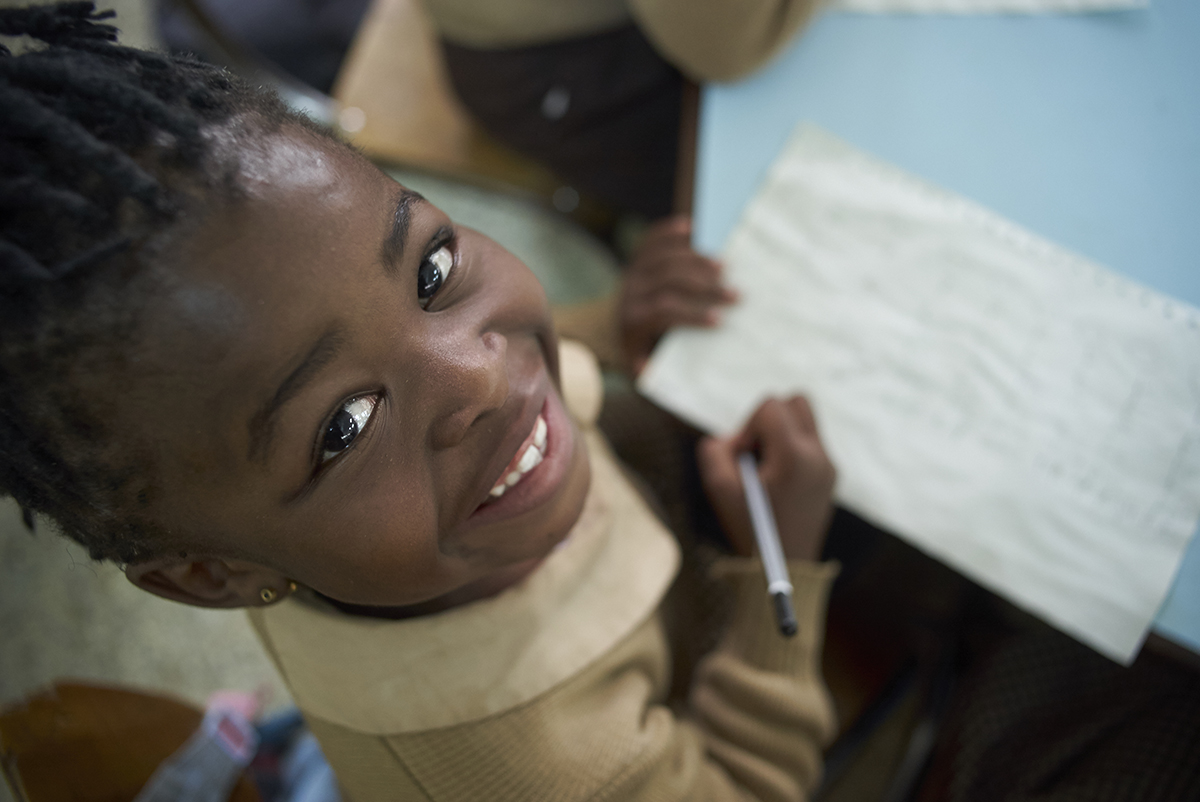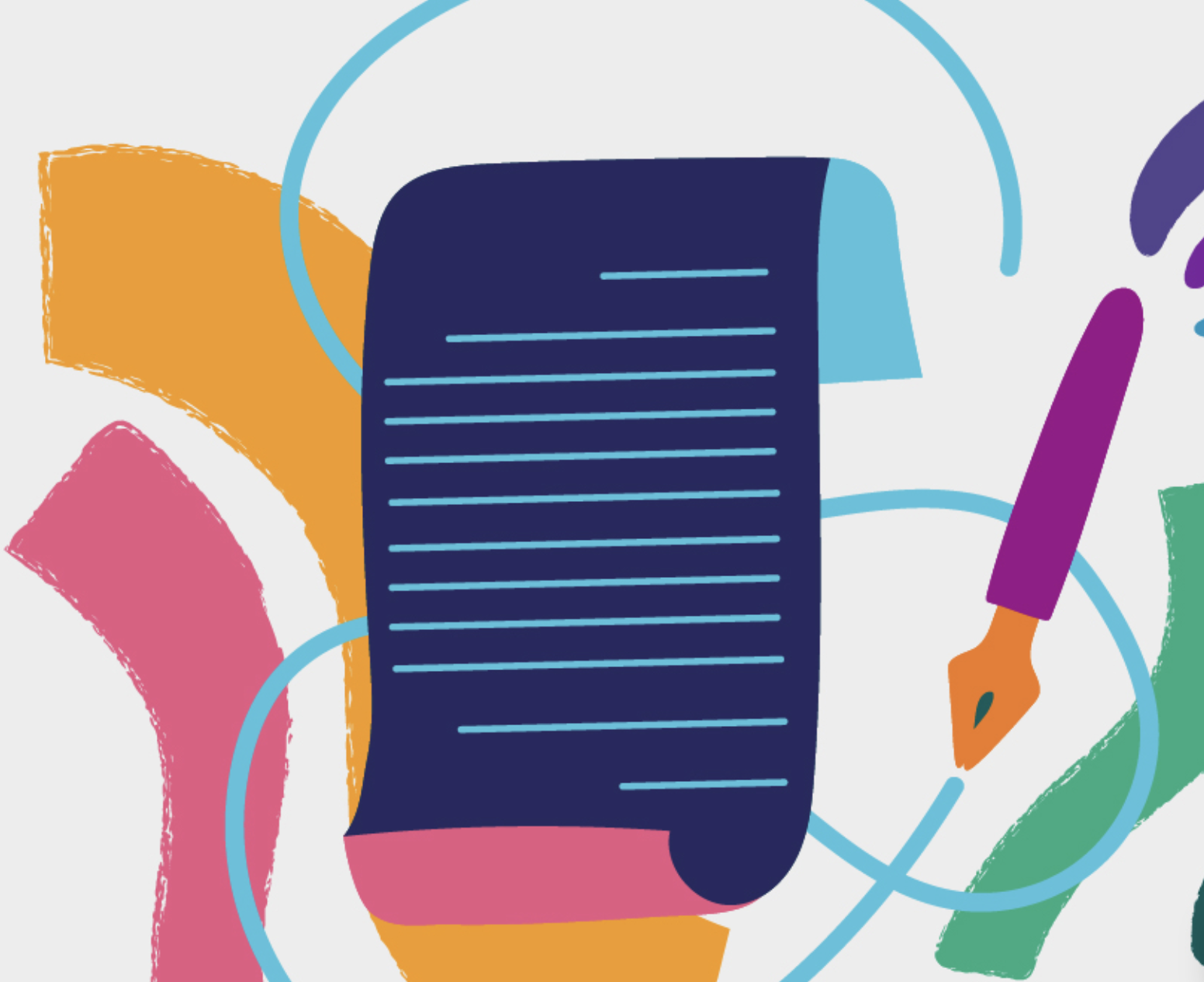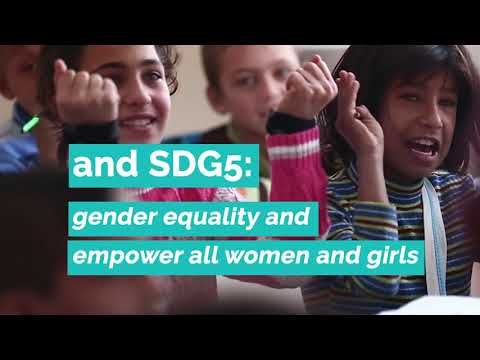As the 10-year countdown to deliver on the Sustainable Development Goals (SDGs) begins, we are reminded of the progress that has been made over the past two decades, as well as how far we have to go to deliver on quality, inclusive education for all.
Across the world, over 130 million girls are out of school and over half of all school-aged girls fail to achieve minimum proficiency in reading and mathematics. Education is a fundamental human right, with the potential to empower girls to become leaders and change makers. Education is also the foundation of sustainable development. Put simply, it is the best investment we can make to build stronger economies and fairer societies.
Introducing the Platform for Girls’ Education
Bold and urgent action is needed to ensure that all girls, especially the most marginalised, have the opportunity to complete 12 years of quality education. For this reason, we launched the Platform for Girls’ Education at the Commonwealth Heads of Government Meeting in 2018. The Platform brings together 12 influential figures from across the Commonwealth, including political leaders, civil society representatives, experts and advocates (see below), who share a commitment to ensuring every girl can access the 12 years of quality education she needs to fulfil her potential.
The first meeting of the Platform for Girls’ Education took place during the 2018 UN General Assembly, co-chaired by the former UK Foreign Secretary Jeremy Hunt and myself. I joined the Platform because as the serving Cabinet Secretary for Education at that time, I recognised the urgency of putting girls’ education at the core of national and international policy. The cumulative effect of investing in universal education generally and girls’ education in particular, will be the determining factor for the collective success of Agenda 2030.

Shifting the dial for 12 years of quality education for all girls
During the UK’s 2018–2020 term as Chair-in-Office of the Commonwealth, the Platform is working to mobilise political will to deliver on commitments made at the 2018 Commonwealth Summit in London to “provide the opportunity for at least 12 years of quality education and learning for girls and boys by 2030”, particularly for marginalised girls. The Platform is also working with the University of Cambridge and the United Nations Girls’ Education Initiative (UNGEI) to develop a series of research reports and policy papers to generate debate and provide recommendations on how we as a global community can shift the dial on girls’ education.
In 2019, the Platform issued its first report, examining the state of girls’ education in the Commonwealth. The research highlights specific actions and interventions to dismantle the complex barriers that prevent too many girls from completing 12 years of quality education. At the end of 2019, the Platform issued a second paper on gender-responsive education sector planning (GRESP). This paper highlights the importance of GRESP as an approach to advance gender equality in and through education, looking beyond gender parity in school enrolment to putting gender equality at the heart of education through gender-sensitive plans and policies.
The Platform will be launching further papers in the coming months on political leadership for girls’ education and adolescent girls’ education and livelihoods.
Driving global commitment to leave no girl behind
With the 2020 Commonwealth Summit in Kigali just around the corner, we, as a global community, must come together to call for visible political commitment from world leaders, and sufficient, sustained investment in girls’ education.
If we delay for one more day, we risk losing the gains that we have made over the years. We do not want to wait another 80 years to deliver the promise we enshrined under SDG 4. That is how long it will take us if we do not pull every resource and political goodwill towards this issue. Education, and especially that of girls in isolated and vulnerable situations, is a future’s call for immediate action. It is the key to opening the doors to inclusiveness and the stamp to our global commitment to leave no one behind.
Until we accelerate progress towards gender equality in and through education, we will not achieve our shared blueprint for the world we want as outlined in the 2030 Agenda for Sustainable Development. In order to deliver on 12 years of quality education for all, securing every girl’s right to learn, lead and succeed, we must put the furthest behind first — prioritising investment in education for the most marginalised, ensuring that no girl is left behind.
The 12 Members of the Platform for Girls’ Education are:
- Rt Hon Dominic Raab MP CO-CHAIR, Secretary of State for Foreign & Commonwealth Affairs, United Kingdom
- Ambassador (Dr.) Amina Mohamed CO-CHAIR, Cabinet Secretary for Sports, Culture and Heritage, Kenya
- Ms. Audrey Azoulay, Director-General, UNESCO
- Ms. Henrietta Fore, Executive Director, UNICEF
- Ms. Julia Gillard, Chair of the Board of Directors, Global Partnership for Education
- Her Excellency, Paula-Mae Weekes (O.R.T.T.), President of the Republic of Trinidad and Tobago
- Her Excellency, Rosy Akbar, Minister for Education, Heritage, Arts and Climate Change, Fiji
- Hon. Louise Mushikiwabo, Secretary General for the Francophonie
- Hon. Shirley Botchwey, Minister for Foreign Affairs and Regional Integration, Republic of Ghana
- Ms. Isabelle Hudon, Canadian Ambassador to France and Monaco,
- Ms. Baela Jamil, CEO, Idara-e-Taleem-o-Aagahi (ITA), Pakistan
- Mr. Kailash Satyarthi, Founder, Kailash Satyarthi, Children’s Foundation, India, Nobel Peace Prize Winner 2014



 English
English العربية
العربية Български
Български Hrvatski
Hrvatski Čeština
Čeština Dansk
Dansk Nederlands
Nederlands Suomi
Suomi Français
Français Deutsch
Deutsch Ελληνικά
Ελληνικά हिन्दी
हिन्दी Italiano
Italiano Română
Română Русский
Русский Español
Español Maltese
Maltese Zulu
Zulu አማርኛ
አማርኛ